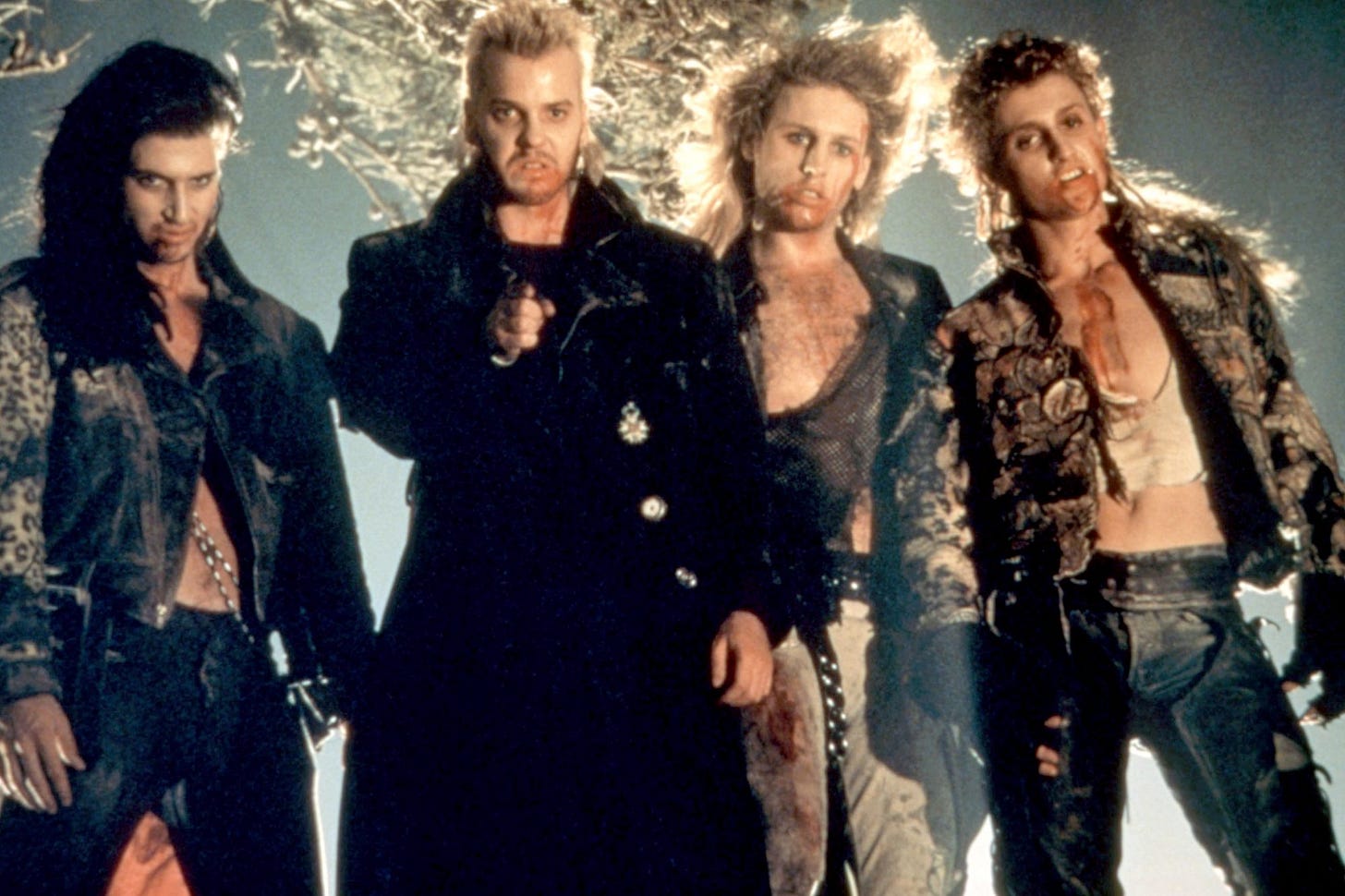The Lost Boys
Freedom and Fear, Part 2
In Part 1, I discussed the latest revelation of a right-leaning anti-woke activist who has been unmasked as a not-so-secret white nationalist. This is not the last such case, there will be others, and of course all of this just makes things harder for those of us who oppose “wokeness” for the right reasons. Oh, well. Any good cause will have to fend off embarrassments from people who claim to be on our side.
But buried in Richard Hanania’s combative and not-very-convincing apology, there is a moment of actual (if incomplete) self-reflection, and this points us to a phenomenon much wider and more interesting than the chronic recrudescence of racism.
Here is his confession.
It’s probably not too difficult to believe that at an earlier point in my life, I wasn’t the greatest at forming normal and healthy relationships with other people. Around 2008, I had few friends or romantic successes and no real career prospects. Naturally, this led me to look around, and come to the only logical conclusion, which was that I was naturally superior to everyone else and women in particular shouldn’t have any rights. Strangely enough, now that I have a fulfilling personal life and objective career success, such ideas don’t appeal to me anymore.
Like I said, this is not entirely convincing. The explanation is a little too pat and doesn’t demonstrate much introspection. Plenty of people have setbacks in their personal lives and careers in their early 20s, but very few of them decide to become tribunes for the cause of eugenics.
I suspect Hanania felt he could leave it at this level because it is an expected and accepted narrative, to the point of being a bit of a cliché, going back a long way. You’ve probably heard the old saw about how Adolf Hitler turned to Nazism after being rejected from art school. Or consider yet another young right-winger caught in a similar scandal—his antisemitic private text messages were exposed by his former friends to punish him for defecting from Trump to DeSantis—who credits his supposed exit from bigotry to the influence of “growing into fatherhood.”
But this is a cliché because there’s a certain amount of truth to it. There is a podcasting-from-mom’s-basement style to a lot of the alt-right, particularly in its obsession with masculinity and with being an “alpha male.” There is no greater confession of being a beta male than talking all the time about being alpha.
The Lost Boys
David French calls these figures from the new right “lost boys.”
Hatred, combined with masculine insecurity and cowardice, is herding young right-wing men into outright bigotry and prejudice. Contrary to their self-conception, they’re not strong or tough or courageous. They’re timid sheep in wolves’ clothing, moving exactly where the loudest and most aggressive voices tell them to….
To fight on the right—mainly by trolling on social media or embracing authoritarianism as the based alternative to weak-kneed classical liberalism—is seen as strong, courageous and cool…. Thus, the troll isn’t just a troll; he’s a man. He’s a warrior.
To my knowledge, Tom Nichols was the first to use the “lost boys” metaphor, in a slightly different context.
In many cases, these man-boys are confused about their sexuality and frustrated by their own social awkwardness, and seek to compensate for it. They turn into what German writer Hans Enzensberger called “the radicalized losers,” the unsuccessful males who channel their blunted male social impulses toward destruction….
Their adolescence, which should have been shed years earlier, has stayed with them like a worn t-shirt or a beat-up pair [of] shoes they couldn’t bring themselves to throw away. Whether fascinated by hip-hop culture like Lindh and Jihadi John, or living a virtual life online like Snowden, they do not move on to the responsibilities of adulthood….
Many of these young misfits are mesmerized, as boys transitioning to men often are, with symbols of sex and power: guns, the military, and heroic medieval myths.
Tom is a conservative, so he offers a conservative explanation and solution.
The already-anarchic environment of adolescence has been turned completely toxic by the absence of responsible adults and especially of male role models…. [T]he answer lies in some kind of long-term restoration of social order among young men.
In a recent follow-up, he laments that “the social institutions that once shaped and restrained the worst impulses of young men—religion, the military, schools, and even marriage itself—have gone through drastic and irrevocable changes.”
I think he’s onto something, though as you will see, I interpret it differently.



